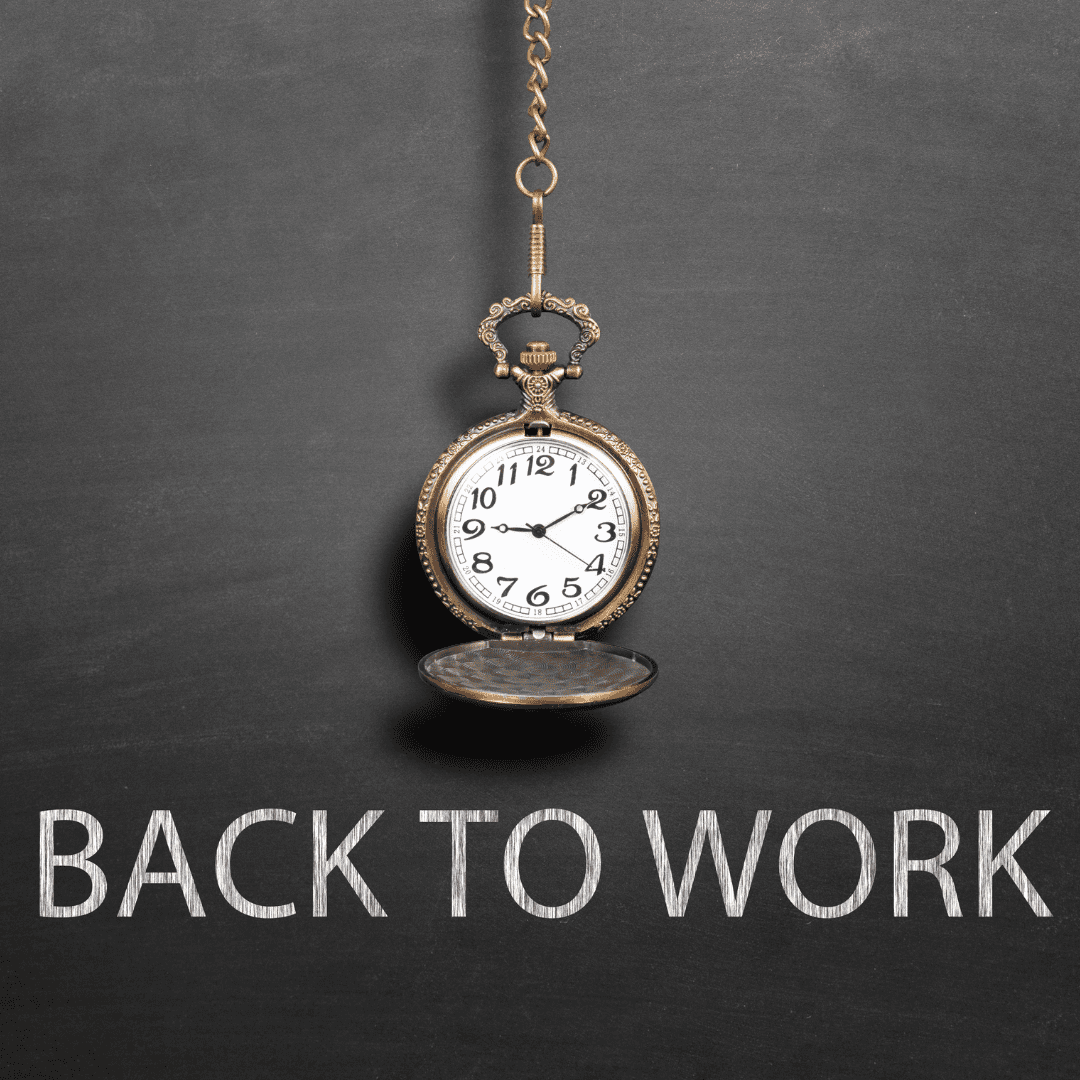Synopsis: This blog will provide tips on return to work post burnout from an experienced psychotherapist.
Understanding Work Stress
Work stress is far more common than you might think. The Workplace Health Report: 2022 found the following:
- 33% of employees report moderate-to-high or high levels of stress
- 28% report that high levels of stress impact productivity
- The top cause of work-related stress is workload (78%)
Burnout versus Workplace Stress
Burnout is an extreme form of Workplace Stress. We can still continue to function both at work and home with some level of stress.
However, when you are burnt out, you really can’t function, not even doing the basics, it’s a state of exhaustion.
Burnout was officially recognised by the World Health Organisation in 2019 as a syndrome, described as:
- feelings of energy depletion or exhaustion;
- increased mental distance from one’s job, or feelings of negativism or cynicism related to one’s job; and
- reduced professional efficacy.
(reference: Burn-out an “occupational phenomenon”: International Classification of Diseases (who.int))
The fact that Burnout is now officially recognised is significant, it is very much a modern phenomenon, and one we are increasingly seeing.
It’s not always something that people think to access therapy for, yet it is just as debilitating as any other emotional symptoms.
How does burnout develop?
There’s a number of risk factors that feed into burnout developing. These are my top 6:
* Having high expectations of yourself (often impossible ones), and moving goal posts
* Caring too much about being a good employee, boss, partner, friend, etc, and therefore having a lack of boundaries
* Feeling overly responsible, and therefore taking on too much
* Being unwilling to ask for help, and hiding how you feel from others
* An inability to relax or let go to have fun
* A lack of helpful coping strategies
Back to work advice
These are my 5 expert tips:
- 1. The first mistake I often see is people only taking 1 or 2 weeks off. Generally a minimum of 4-6 weeks is needed, sometimes a few months. I can’t tell you how often I am trying to persuade people to stay off for longer. I often hear words like “but there’s too much to do, I can’t take that long off”, which to be fair is exactly the problem. Burnout recovery takes longer than you might think, don’t rush back, otherwise you’ll just end up back in the same place in a few months time.
- Those who experience burnout are often high achievers, like to be productive, like to help others lots. These are the very things that have contributed to your burnout, the lack of rest, lack of relaxation, lack of fun. So make sure whilst you’re signed off work that you focus on the things that will help you to recovery, not keep you in an adrenaline state. Try to slow down, focus on the basics. Stay away from trying to blitz the house, do DIY etc. Think about it as going about life at the pace a 90 year old would, and you won’t go far wrong.
- When you return to work, it needs to be sustainable. A good return to work plan can make a huge difference with this. Negotiate this with your employer first, then work out based on that when you will be ready to return. Don’t agree a return to work date without this plan in place. A return to work plan should consist of 3 parts – phased hours, phased duties plan, ongoing support needs. An employer will often let you take the lead on what this looks like, and this can often mean falling into the plan of not asking for anything really at all (after all those who burn out are often bad at asking for help). So it’s really important to consider this careful, and come up with some ideas of what would help your return to work to feel less overwhelming, and maintaining being in work doable without future burnout.
- You absolutely shouldn’t be returning to work if you’ve not got everything else in your life working yet. Get the basics sorted first – good sleep, regular meals, good energy, motivation etc. Work should be the last piece of the puzzle to slot in, not the first. Make sure you’ve developed a routine of good habits, and been able to maintain it for a couple of weeks before you re-introduce work.
- You also shouldn’t return to work if nothing has changed. If you’re still a chronic perfectionist, still a chronic people-pleaser, still massively overthinking or worrying, still struggle with boundaries etc, then a return to work won’t be sustainable. You need to make changes to stop the burnout re-occurring.
Get in touch if you want to find out more about how I can help. Contact Us | Hannah Paskin (hannahpaskintherapy.co.uk)








